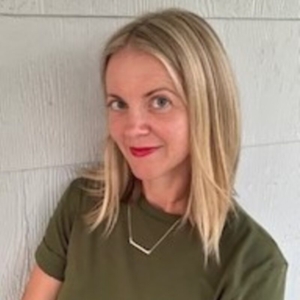Listen to episodes featuring Laura Engel:
Global Dimensions of Education Policy in Federal Contexts
by Laura Engel
Associate Professor of International Education and International Affairs and Director of the GW Global Education Lab
The George Washington University, Washington, DC
What does the “global turn” in education look like? What does it look like in federal systems of education?
Much of my teaching and scholarship continues to be driven by these questions. I am interested in the types of education policy reforms that are born out of larger global economic, political, environmental, and cultural trends, and the intersection of globally mobile ideas and ideologies with national policy architectures and the power structures that they house. Most recently, I have focused on “following” education policy ideas related to global citizenship and global competence: how these constructs are framed, developed, and measured (including in international testing regimes); how they are enacted in different policy environments; and how they are embraced or even initiated by local actors. I often locate my research in federal systems of education, where governance can be shared across multiple levels, and is reflective of multiple stakeholder interests.
I am always excited to listen to FreshEd podcasts, which regularly feature scholars whose insights have informed how I have come to understand the “global turn” in different education policy settings. For example, Arjun Appadurai’s work sheds light on how globalization’s effects give rise to increased uncertainties or insecurities embedded in the national project. Education, an institution at the center of the national project that is both socially transformative and reproductive of (often obstinate) national power structures, is, therefore, an important institutional context for understanding how such global uncertainties provoke certain aspects of the national project that leverage particular reform agendas. Importantly, because of their accessible format, FreshEd conversations help me to reflect on some of the concepts that I have (and continue to) draw on in an effort not to fall into binary constructions (i.e., the national vs. the global or the local vs. the global). The 2018 interview with Susan Robertson and Roger Dale includes an excellent and thought-provoking reflection on comparative education as it relates to methodological nationalism and globalization studies in education at a time of “hardening boundaries, nationalisms, the notions of nation.”
I would also recommend the conversations with Marianne Larsen and Jason Beech on conceptualizing space in studies of globalization and education. To think about how those spaces are constructed and reconstructed and who is involved in bringing them to life, the conversation with Francine Menashy illuminates the different state and non-state actors driving global governance in education. FreshEd’s contributions reach well beyond this particular theme of global dimensions in education. What is wonderful about these podcasts is that they render educational ideas and research digestible, and the scholars behind the research accessible, making FreshEd shows among my top teaching tools in education courses.
June 1, 2022








